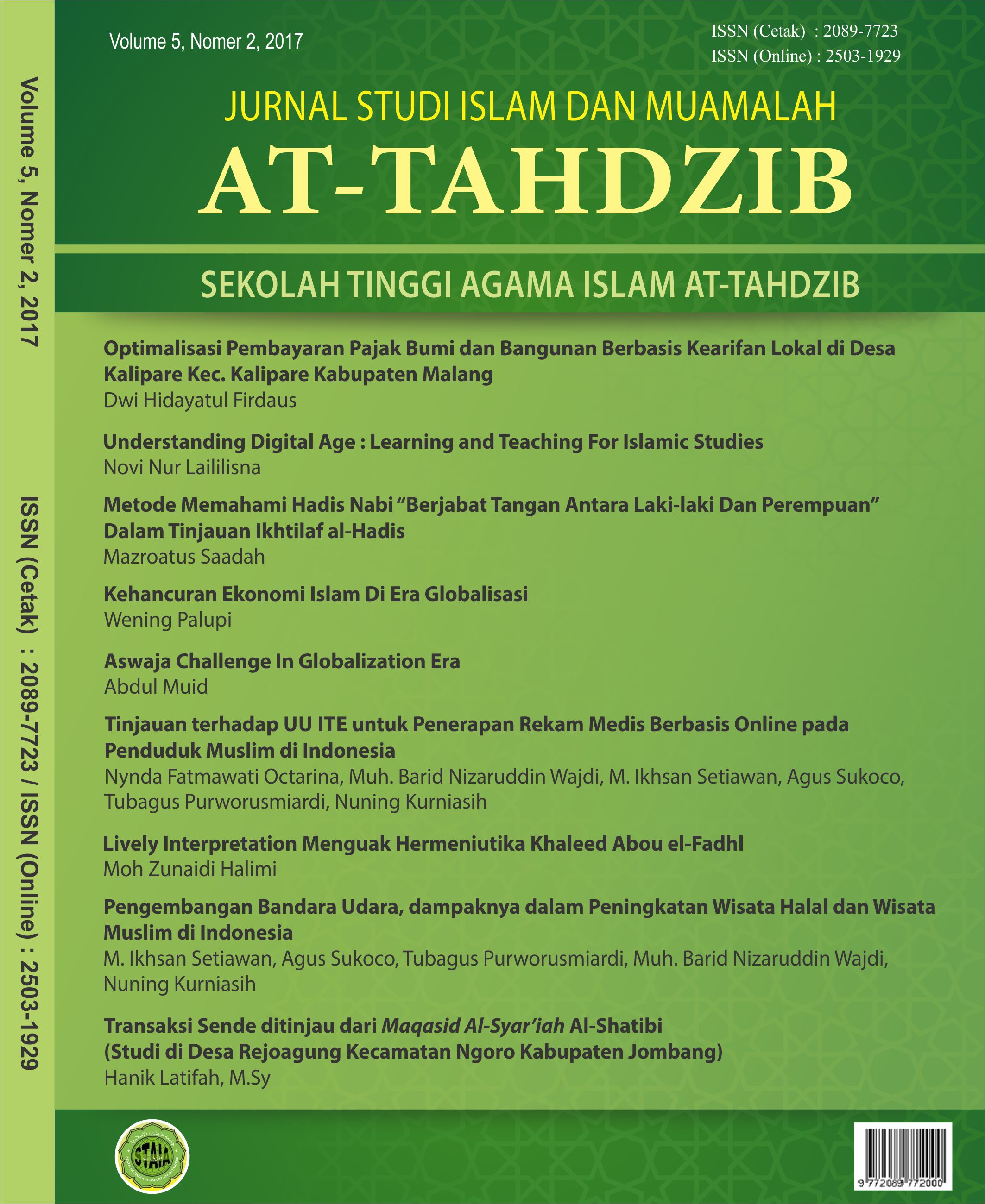Understanding Digital Age : Learning and Teaching For Islamic Studies
Abstract
Students and teacher are engaging into learning atmosphere where they are able learn and teach at anytime and anywhere. They are able access materials of subject lesson from their devices or gadget for example; it is just swimming in the sea of electronic product and gadget; students’ – teachers’ knowledge and application of technology are producing literacy skills for a 21st-century digital age. At a variety of educational institutions, digital media production functions are as a mechanism for learning, expression, and building community and identity. Based on perspective as a teacher, digital technology is appropriately and meaningfully producing the successful learner outcomes; in other hand, Islamic studies have very competitive contribution of knowledge around the globe. By using the design of qualitative research – basic interpretative studies (Ary et al, 2010), this study is trying to answer the question such as what are learning and teaching in digital age? Then, this study has purposes to gain description and understanding to learners and teachers of Indonesia in being professional of capacity development in the terms of learning and teaching, especially in Islamic studies.
Key Words: learning, teaching, digital age
References
Andrew Goodwyn, “A Bringer of New Things: An English Teacher in the Computer Age?†in English in the Digital Age, Andrew Goodwyn (ed), (New York: British Library Cataloging-in-Publication Data, 2000),.
Bennett, S., K.A. Maton and L. Kervin, “The ‘Digital Natives’ Debate: A Critical Review of the Evidenceâ€, (British Journal of Educational Technology: 2008), Vol. 39, No. 5.
Brian Hocking and Jen Melissen, Diplomacy in the Digital Age, ( Netherlands: Netherlands International of International Relations Clingendael, 2015).
Bunt, Gary R. Islam in the Digital Age, (London: Pluto Press, yy).
Donald Ary, Introduction to Research in Education, (USA: Wadsworth, 2010),
Ohm, Udo. “What Role do Digital Media Play in Autonomous Learning?â€, (National University of Singapore, Centre for Language StudiesElectronic Journal of Foreign Language Teaching 2007), Vol. 4, No. 1, pp. 140–148.
Copyright (c) 2017 AT-Tahdzib: Jurnal Studi Islam dan Muamalah

This work is licensed under a Creative Commons Attribution 4.0 International License.

Jurnal Studi Islam by At-Tahdzib is licensed under a Creative Commons Attribution 4.0 International License.
Based on a work at http://ejournal.kopertais4.or.id/mataraman/index.php/tahdzib

